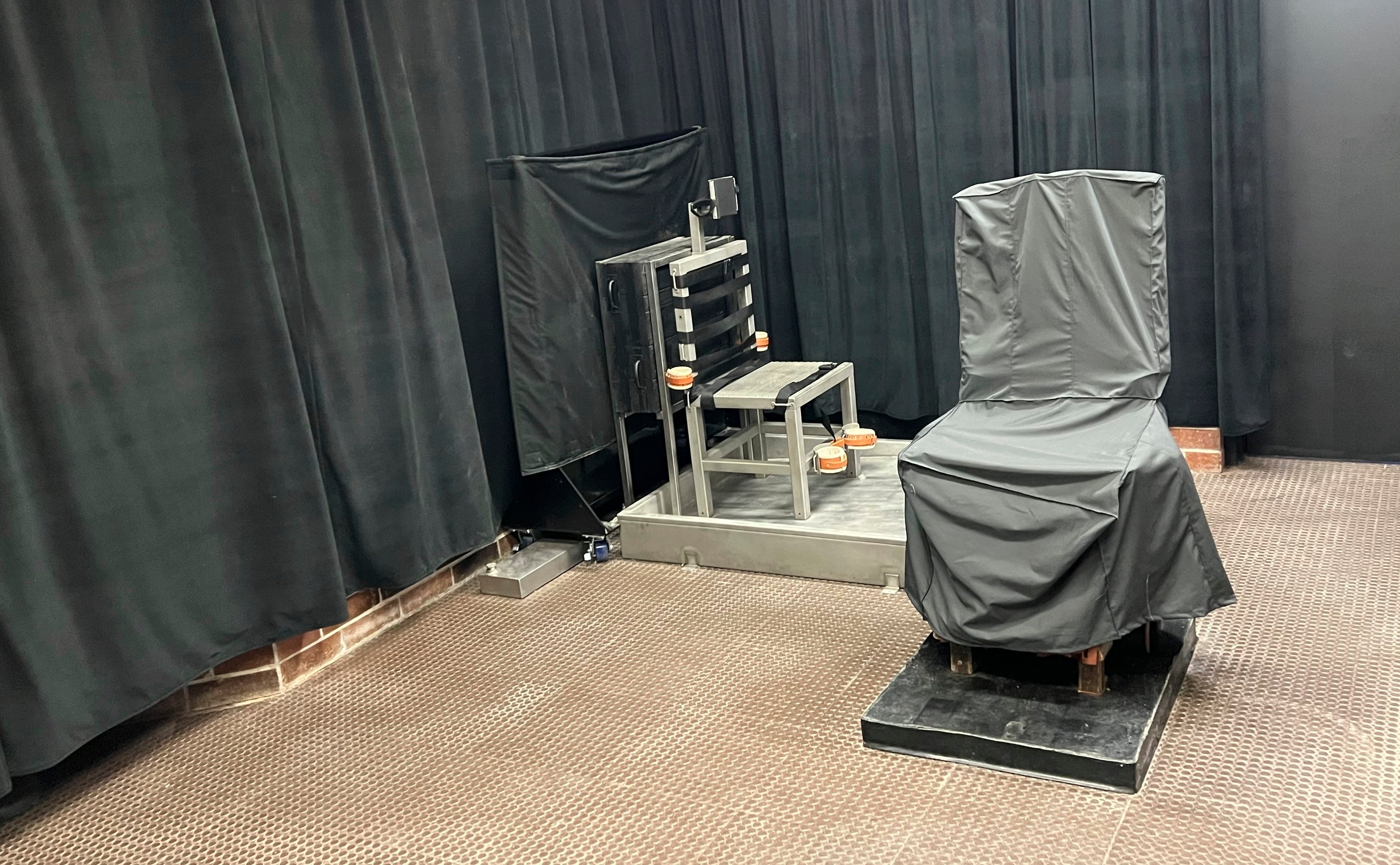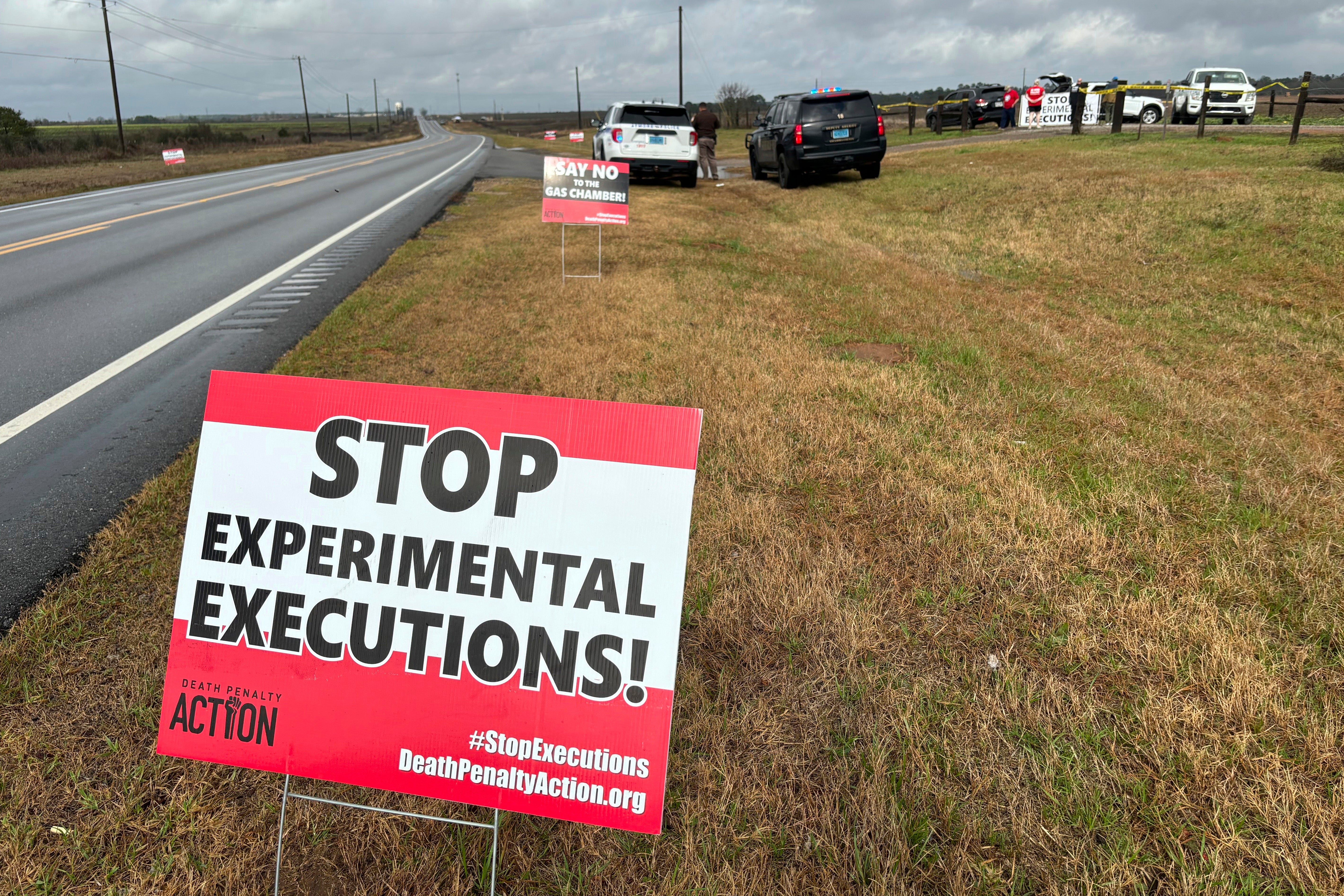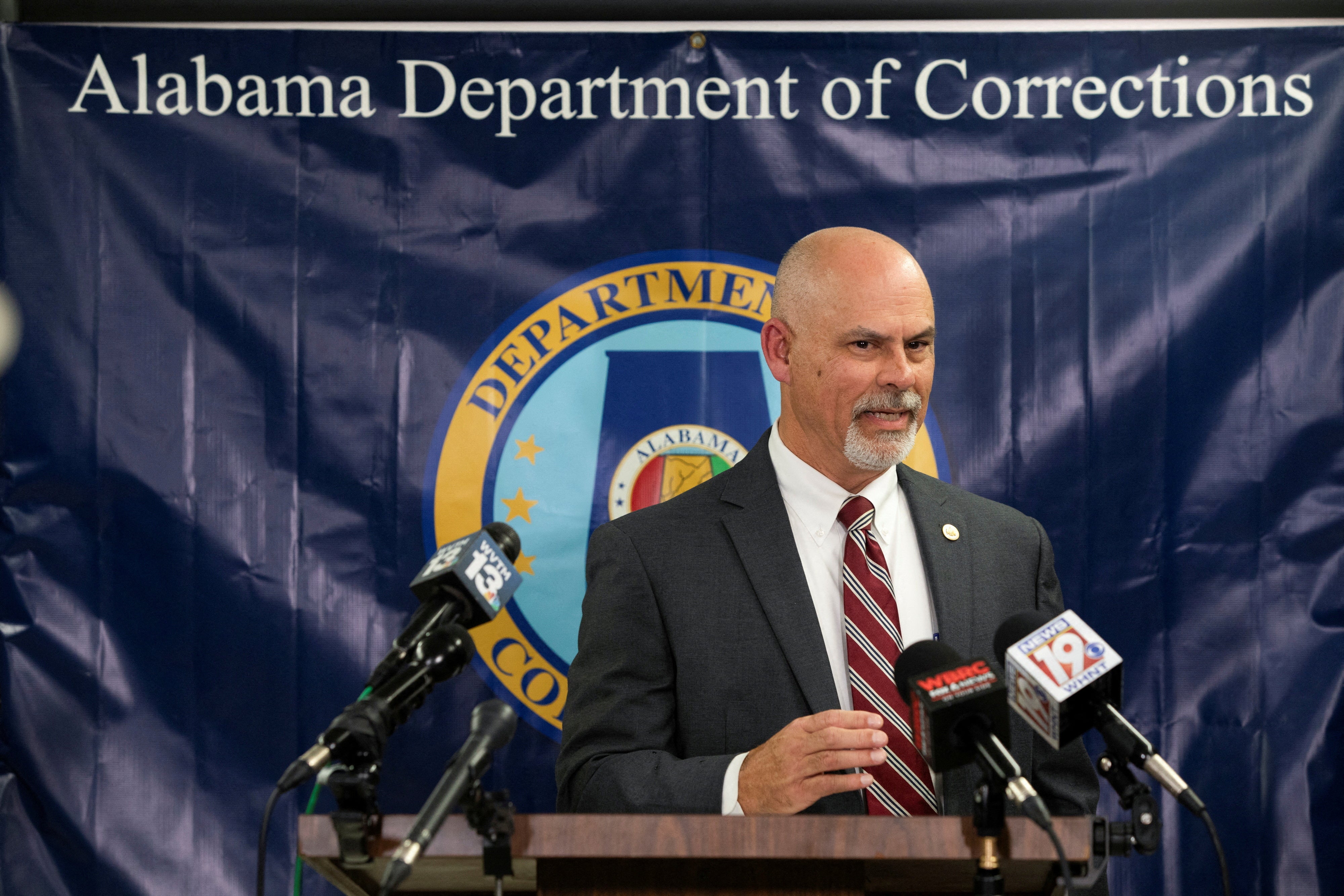First Alabama brought in nitrogen gas executions. Now South Carolina could bring back the electric chair
With supply issues leaving states grappling to get their hands on lethal drugs, some are turning to alternative and highly controversial execution methods. Michelle Del Rey reports


First, Alabama brought in nitrogen gas.
Now, South Carolina is looking to bring back the electric chair and firing squad.
With supply issues leaving states grappling to get their hands on lethal drugs, some are turning their attentions to alternative methods to execute the hundreds of prisoners currently sitting on death row.
South Carolina has not executed a death row inmate in 13 years because these drugs, used for lethal injections, have become increasingly difficult to find. Pharmaceutical companies and drug manufacturers do not want to sell them to states unless they can remain anonymous, The Associated Press reported.
With issues around the use of lethal injections playing out, the state of South Carolina brought the use of the controversial methods of electric chair and firing squad to the table.
Now, the electric chair is currently the state’s backup method if inmates do not select a method of execution. That policy is due to a 2021 law that made the electric chair the default method with firing-squad as an alternative.
The firing squad has only been used three times in the last 50 years – all in Utah, with the last execution of this type in 2010. The last time the electric chair was used was 2020.
Meanwhile, Alabama put the first person in the world to death using the controversial – and wholly untested – method of nitrogen asphyxia in January.
Alabama’s use of nitrogen gas
Kenneth Eugene Smith was put to death using nitrogen hypoxia, a method that slowly deprives the brain of oxygen, in January at William C Holman facility in Atmore.
Smith had been convicted of the 1988 murder of 45-year-old Elizabeth Sennett, a pastor’s wife. At his trial, a jury voted 11-1 for life imprisonment, but that verdict was overruled by a judge who sentenced him to death.
Media witnesses in the room said Smith could be seen thrashing and writhing during the execution, at points pulling against his restraints.
This was followed by several minutes of heavy breathing, until his breaths were no longer detectable and he was pronounced dead.
Smith had chosen the method after the state tried to put him to death in 2022 using lethal injection and botched the procedure. Officials aborted the attempt after they could not place a second intravenous line into Smith’s system.
Attorneys for the state argued that Smith would be unconscious in seconds and dead within minutes using the nitrogen gas method. However, following his execution, the state said the procedure took about 22 minutes.
The American Civil Liberties Union condemned Smith’s execution.

“Mr Smith should have never been killed, let alone in such a gruesome manner,” the organisation’s Deputy Legal Director Yasmin Cader said in a statement after his death.
“Alabama’s execution of Kenneth Smith is a horrific, reckless, and untested manner in a proud illustration of the barbaric practice of capital punishment.”
Following this first-of-its-kind execution, the state’s Attorney General Steve Marshall said that 43 other inmates had also elected nitrogen gas as their execution method – and that he hopes other states will use Alabama as a blueprint.
South Carolina’s plans
There are currently 33 people on death row in South Carolina.
In 2021, the electric chair became the default method in the state when there is no lethal injection drugs available – with firing-squad as an alternative option.
The state began setting execution dates using these methods.
This prompted some uproar and, in September 2022, South Carolina Circuit Judge Jocelyn Newman determined that both were unconstitutional execution methods.
During a 90-minute hearing in front of South Carolina’s Supreme Court in early February, attorneys for the state argued that the methods are in accordance with existing protocols and asked the high court to overrule Judge Newman’s decision, according to Greenville News.
Meanwhile, attorneys for four men currently on death row argued that the execution methods constitute cruel and unusual punishment.
However a change in law has made lethal injection drugs available again in the state.
Last year, South Carolina therefore passed a shield law that would protect the identities of pharmaceutical companies selling the lethal drugs to the state.
Attorneys for four men currently on death row argued in court that the law is shrouded in secrecy and does not allow inmates to get details about their executions.
It’s not uncommon for states to release limited details about their execution policies. According to The Associated Press, an attorney for the inmates asked if the state has secured a regular supplier of pentobarbital, a sedative, and whether there are guidelines to test it.

“No inmate in the country has ever been put to death with such little transparency about he or she would be executed,” Lindsey Vann, an attorney working with Justice 360, a nonprofit, said, according to the outlet.
Attorneys for the state clapped back, stating that the attorneys were only seeking that information so they can put public pressure on the companies to stop supplying the drugs to the corrections department.
Yet, now that lethal injection drugs are available, attorneys for Republican Governor Henry McMaster and the South Carolina Department of Corrections said that the years-long debate into the constitutionality of the electric chair and firing squad are redundant.
What are other states doing?
After Smith’s death, Ohio Attorney General Dave Yost announced new legislation to authorise the use of nitrogen gas in state executions.
Meanwhile, a lawmaker in Nebraska introduced legislation that would also allow the state to use nitrogen gas as an execution method.
Currently, only Alabama, Mississippi and Oklahoma have approved the use of nitrogen gas in executions.
Following South Carolina, Idaho Republican Governor Brad Little signed legislation into law last year permitting firing squads in executions, becoming the fifth state to implement the method.
What do experts say?
The American Civil Liberties Union of South Carolina said the death penalty is “immoral and unconstitutional. It is racist in practice, it is ineffective as a deterrent to crime, and it traumatises those who carry it out”.
Experts who testified for the four prisoners, arguing against the constitutionality of the electric chair and firing squad, said that the former method is likely to cause immense pain as the individual’s body begins “cooking” in 2,000 volts of electricity.
Meanwhile, the firing squad iwould cause the inmate’s heart to stop almost immediately, rendering them unconscious as they quickly bleed to death.
A 1993 study conducted by a researcher at the University of Surrey found that firing squad was one of the least painful methods of execution, though it is ultimately impossible to know how much pain the person being executed experiences.
The Independent and the non-profit Responsible Business Initiative for Justice (RBIJ) have launched a joint campaign calling for an end to the death penalty in the US. The RBIJ has attracted more than 150 well-known signatories to its Business Leaders Declaration Against the Death Penalty – with The Independent as the latest on the list. We join high-profile executives such as Ariana Huffington, Facebook’s Sheryl Sandberg and Virgin Group founder Sir Richard Branson as part of this initiative, and are making a pledge to highlight the injustices of the death penalty in our coverage.
Join our commenting forum
Join thought-provoking conversations, follow other Independent readers and see their replies
Comments
Bookmark popover
Removed from bookmarks